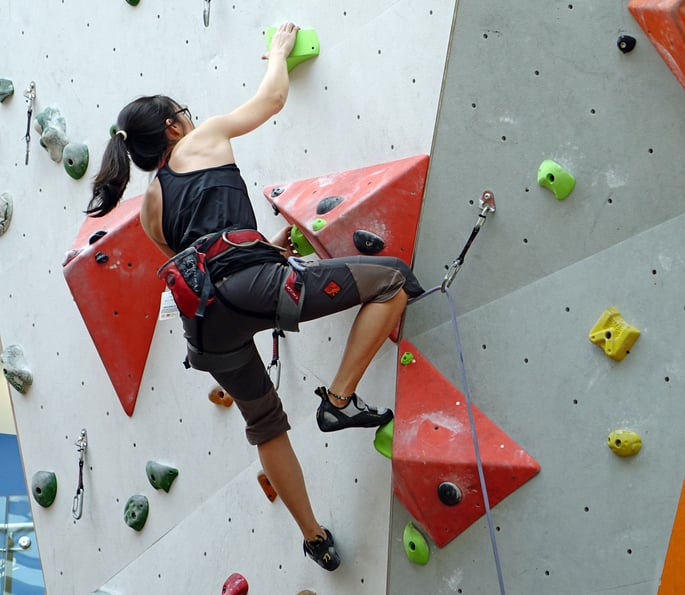Ways to grow closer to coworkers, family, and/or friends during social distancing.
7-minute read
Let’s choose ‘social closening’ in times of social distancing
Just because we’re practicing social distancing in the physical sense, doesn’t mean we have to feel distant. At LifeLabs Learning, we’re big fans of the reframe. Instead of viewing social distancing as isolation, what if we chose to view it as an opportunity to deepen our relationships?
With weeks of quarantine under our belts, we adaptive human beings have adjusted our routines and daily lives to fit into the constraints of social distancing. Now the challenges we face have shifted. We’ve grown fatigued of Zoom calls, have settled into our remote work space, and find it difficult to delineate between Monday and Thursday.
Even though we’re more well-adjusted than we were a month ago, opportunities remain to use this time with intention. After all, we can’t predict how the next few weeks (months) will evolve.
What we can do, though, is continue to grow closer to our coworkers, family, and friends. Regardless of physical boundaries, research shows that communication and belonging foster perceived proximity. During uncertainty and crisis, the brain takes comfort in and craves direction. Let’s use this time to amplify the areas that we can control!
Here are three approaches to build engagement, foster belonging, and nurture connection with loved ones during these uncertain times. Even though we might be contained in a physical box, our community doesn’t have to be!
1.) Create opportunities to connect
At LifeLabs Learning, one of our values is Always Be Learning. We’re passionate about connecting with one another, and demarcating progress along the way. That’s why we seek opportunities to expand our own knowledge, hold each other accountable, and reinvigorate our childlike curiosity. This learning mentality of course applies in the work that we do, but also to deepening our relationships with the self and one another. Here are some ideas that we’ve been integrating at LifeLabs.
- Virtual coffee / lunch dates: Is there someone you’ve been meaning to catch up with, or someone you’d like to get to know better? Now’s your opportunity! Set up a virtual coffee or lunch date, and spend some QT together. Plus, as Christine M. Riordan notes, developing friendships at work can improve engagement levels, build trust, and enhance creativity.
- Spontaneous collisions: Since we’re all working remotely these days, it’s important to be deliberate about connection. That’s where spontaneous collisions come in! We make time to come together, like team and globemate standups. There’s no specific topic for these, and attendance is optional. What makes spontaneous collisions so lovely is the art of surprise: you never know who might show up, or what you might discuss. If time allows, you could even linger at the end of video calls to create hallway moments (as if you were passing a coworker in the hallway on the way to another engagement). It’s simply an opportunity to be present with one another, reset, and enjoy one another’s company.
- Create clubs based on interest: At LifeLabs, we’re all about caring for the whole person, or as the Jesuits say, cura personalis. What drives your team? What gets people excited (besides the work that you’re doing)? There are organic opportunities to bring folks together and foster community.
LifeLabs Clubs:
- Club de Coronas: For folks who want to practice their Spanish language skills.
- Lightweights: For those who are seeking accountability around wellness goals.
- Labmate yoga: For those who want to practice yoga together on a weekly basis.
- Labmate runs: For those who want to run together weekly.
- Improv: For those who want to yes, and their way through the week.
- Let’s Practice Coaching: For those who want to deepen their coaching skills.
Pro-tip: Use these approaches in the workplace and at home! Who says ‘social closening’ has to be confined to the workplace? Take your social closening practices on the metaphorical road, and use them to connect with friends, family, and communities!
2.) Align on communication norms
Whether at work, with family or friends, or with a partner, communication in times like these is key! When in doubt, err on the side of over-communication. Why? Communication leads to clear expectations, and ensures team alignment. Both of these contribute to collaboration and building trust, thus, social closening.
Here are ways to make sure everyone is on the same page:
- Co-create a Team Playbook: You can use this template to reflect on the communication tools your team leverages, define primary uses, and agree on norms. It will also help you identify redundancies, and create ground rules for each modality! How’s that for brain-friendly communication?
For example, at LifeLabs, we text and call for two reasons: 1) emergencies (last minute changes, travel challenges, etc.) and 2) personal communication (birthdays, to say hello, etc.). What’s important about this? It promotes closed loop communication. What we don’t want is task prompts coming through email, in-person, gchat, and text messages. That’s the fast track to amygdala hijacking!
- Create an internal communications task force: Have folks who are interested in improving internal communication at your org? Create a task force! It’s a great way to build expertise, collaborate with folks across the organization, and contribute to improving the process. Plus, it contributes to individual development goals.
Here are three small steps to get you started:
- Identify pain points within the organization. What optimization opportunities exist?
- Pull for ideas from the team. What’s their experience like with this pain point?
- Open call for a task force. Who is interested in the topic and has the bandwidth to focus on this topic?
- Sample areas to explore:
Team newsletter
Channel norms
Connection opportunities
Meeting best practices
Company meeting information
Project processes
Feedback norms
What would you add?
Pro-tip: For more remote work insights, check out the LifeLabs Learning: Complete Remote Work Playbook.
3.) Celebrate success (and progress)
Just because we’re in quarantine doesn’t mean we shouldn’t celebrate! Quite the contrary, in fact. Sharing individual success and celebrating team success is more important than ever. What if we acknowledge that times are hard right now, and reframe the uncertainty as an opportunity to iterate and demarcate progress along the way?
- Look Back, Look Forward: There are many different markers of success. One of the best ways to celebrate is by reflecting on the past, acknowledging the present, and planning for the future. This creates deliberate development and learning opportunities.
Reflection Questions:
What have you achieved as an individual/company since this time last year?
What’s one small win?
What surprised you?
What did you learn in the process of becoming?
What could have been 10% better?
What are the possibilities now?
What’s one small change you could make moving forward?
What are your next steps?
In an ideal scenario, what do you want to see this time next year? Dream big!
- Slack missions channel: At LifeLabs Learning, we have a team ritual in our #missions Slack channel. Biweekly, we challenge the team to a “mission.” You can leverage missions to celebrate success! For example, a recent mission was to focus on self-care, and share it with the group. Here are some questions to celebrate self-care and pause to consider the present journey now:
What is one way I can support my mind/body/spirit right now?
What’s one random act of kindness I might try or witnessed this week?
What’s a memorable moment or tradition you have around transportation?
How have you recently used the skills required to be successful at work outside of the workplace?
What’s the thing you’re most looking forward to after quarantine is over?
What’s something that’s brought you joy during this uncertain time?
What’s something you’ve learned about yourself, your partner, family, friends, or company during COVID-19?
Pro-tip: Find a way to play! As adults, we don’t play enough. Play is important because it actually helps us deepen our own resiliency. What’s one way you can integrate play into your daily life?
Do you feel closer to family, friends, and coworkers already? I do! Social distancing protocols have challenged all of us to find new ways of staying connected. Even though we might feel better accustomed to our new ‘normal’ than we did a few weeks ago, it’s still not totally comfortable. That’s okay! A quick reframe: consider how you feel now compared to a few weeks ago. Are you in a space of acceptance, denial, grief? My guess is that you’ve moved along the Kubler-Ross Change Curve. Perhaps you’ve oscillated, and that’s okay, too! The point is that progress is progress.
Your mini-mission, should you choose to accept it, is to try one of these approaches this week.
Bonus: After you try it, share the results with your team, a friend, and/or in our comment field!
Happy social closening!


